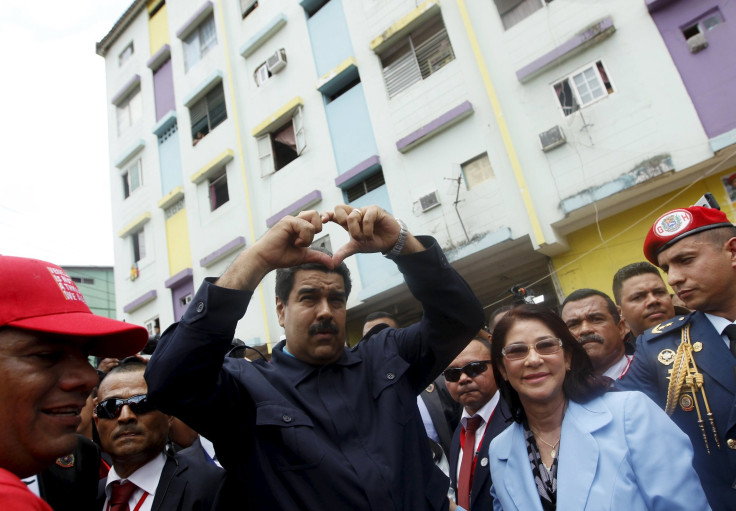Venezuelan First Lady Gets Her Own Weekly TV Show

There will soon be a new face of the revolution on Venezuelan TV screens: that of Cilia Flores, wife of President Nicolás Maduro. She'll host a weekly television series on the history of Venezuela’s socialist revolution from a female perspective, the government announced this week.
Maduro disclosed the news Tuesday during his own weekly television broadcast, “In Contact With Maduro.” While he didn’t offer many specifics, he said he had asked his wife to produce an hourlong weekly program in conjunction with the government’s ministry of communication, and she agreed. It would “show the life of this revolution from the perspective of a sensitive woman,” he said, Venezuelan media reported.
The first lady's show will be an extension of a segment she has already been contributing to “In Contact With Maduro,” in which she profiles and interviews revolution supporters.
Both programs are successors to the late President Hugo Chávez’s “Aló Presidente” (“Hello President”), a weekly television show on which Chávez featured songs and lengthy speeches, answered call-in questions from viewers and critiqued his detractors, both foreign and domestic. That show -- a mix of propaganda, policy announcements, variety entertainment and talk show -- would often go on for hours. The longest-running episode, aired in 2007, ran for eight hours. The show ended in January 2012, shortly after Chávez returned from cancer-related surgery in Cuba, and a year before he died.
Although Flores -- dubbed the “First Fighter” by her husband -- has a decidedly lower international profile than Maduro, she’s been an important figure of Venezuela’s socialist revolution. She was previously a lawyer who helped Chávez secure release from prison after he attempted, and failed, to overthrow the country's government in 1992. She later became the first female speaker of the National Assembly. Through Chávez she met Maduro, and they married in 2013, nearly 20 years into their relationship.
The new program could be seen as an attempt by the Venezuelan government to boost its popularity, as Maduro’s approval rating remains weak at around 25 percent. Venezuelans have been suffering from widespread shortages of basic goods; research firm Datanalisis estimated that Venezuelans spend an average of 5.6 hours a week waiting in lines for scarce grocery items. Meanwhile, the International Monetary Fund projected that Venezuela’s economy would contract by 7 percent in 2015.
© Copyright IBTimes 2025. All rights reserved.






















